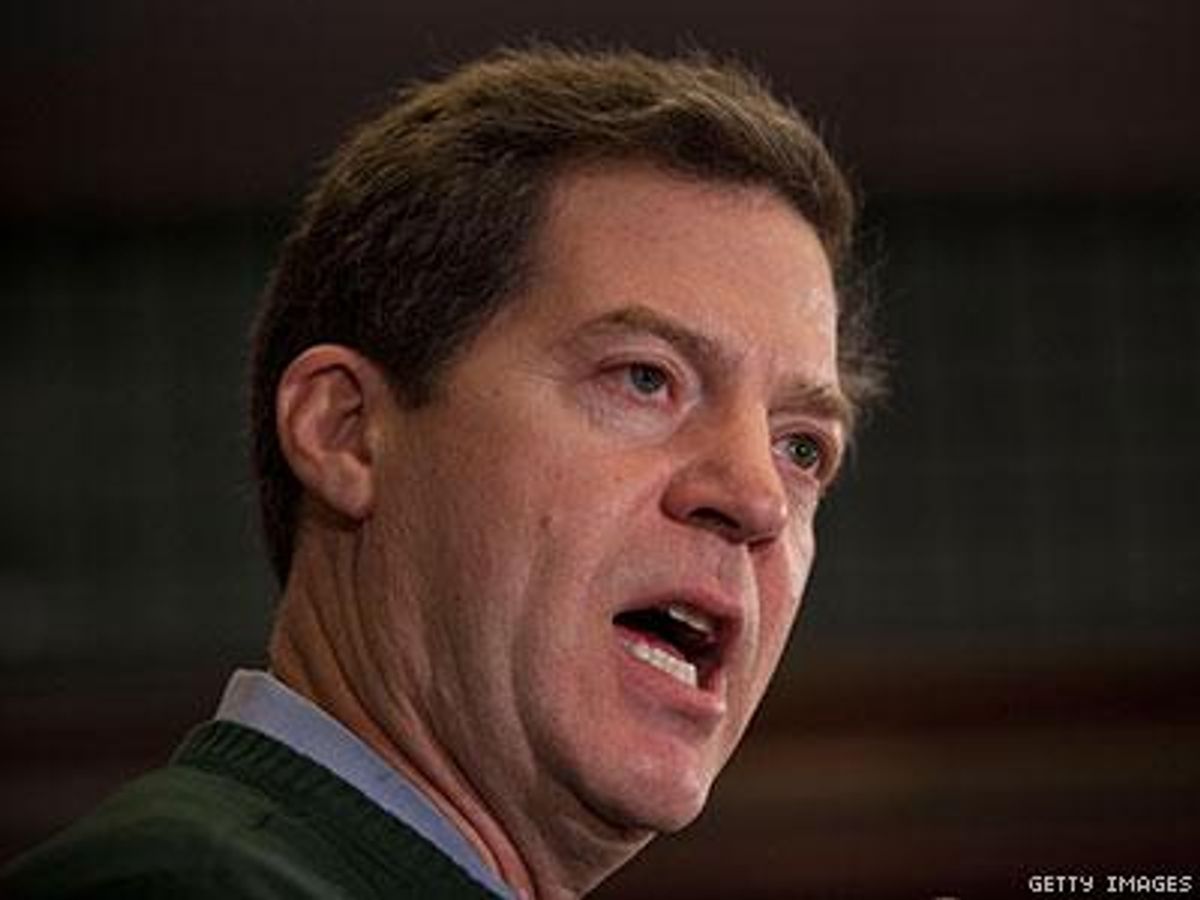When the U.S. Supreme Court Wednesday refused to delay the implementation of a November ruling striking down the state's ban on marriage equality, same-sex couples in the Sunflower State began applying for marriage licenses.
But the impending nuptials haven't stopped the state's recently reelected Republican governor, Sam Brownback, from persisting in his stalwart defense of marriage discrimination in Kansas. Just hours after the Supreme Court denied Brownback's request to put marriage equality on hold as the state appeals, the governor and Attorney General Derek Schmidt, also a Republican, announced that they would fight the arrival of marriage equality with every legal tactic available to them.
And this morning, the state's Republican leadership announced their approach to stand in the way of equality. Attorney General Schmidt has claimed the ruling, handed down last week by U.S. District Judge Daniel Crabtree, applies only to the two counties directly addressed in the lawsuit, according to the Associated Press.
The American Civil Liberties Union, which filed the case that struck down Kansas's marriage ban, contends that the ruling applies to all 105 counties in Kansas.
The legal confusion has prompted some counties to hesitate on issuing marriage applications to same-sex couples. At press time, Kansas Equality reports that Sedgwick, Reno, Saline, McPherson, Riley, Cowley, Shawnee, and Douglas counties are all allowing same-sex couples to apply for marriage licenses. County officials in Butler, Greenwood, and Elk counties have thus far refused to issue licenses to same-sex couples, with the district court serving those counties saying it will wait for explicit instructions from a higher court requiring the district to issue such licenses. Equality Kansas is keeping track of the quickly changing tally of counties issuing marriage applications to same-sex couples on its Twitter and Facebook page.
Even in the counties that are allowing gay and lesbian couples to apply for marriage licenses, many are enforcing a state-mandated three-day waiting period between the initial application and when a couple receives a marriage license. Some counties are reportedly waiving that waiting period on a case-by-case basis, while others are allowing couples who previously applied for marriage licenses to pre-empt the waiting period.
Johnson County, which is the state's most populous and contains several suburbs of Kansas City, is reportedly accepting marriage applications from same-sex couples but has yet to issue licenses, awaiting resolution of a separate case pending before the Kansas Supreme Court that sought to keep a state-level judge from ordering county clerks to issue marriage licenses for that county. A hearing was scheduled in that case earlier this week, but it was postponed by the court, which explained it would resolve the issue after additional guidance from the federal court system.
With Wednesday's Supreme Court action, Kansas became the 33rd U.S. state to embrace marriage equality, in addition to the District of Columbia.



















































































Fans thirsting over Chris Colfer's sexy new muscles for Coachella